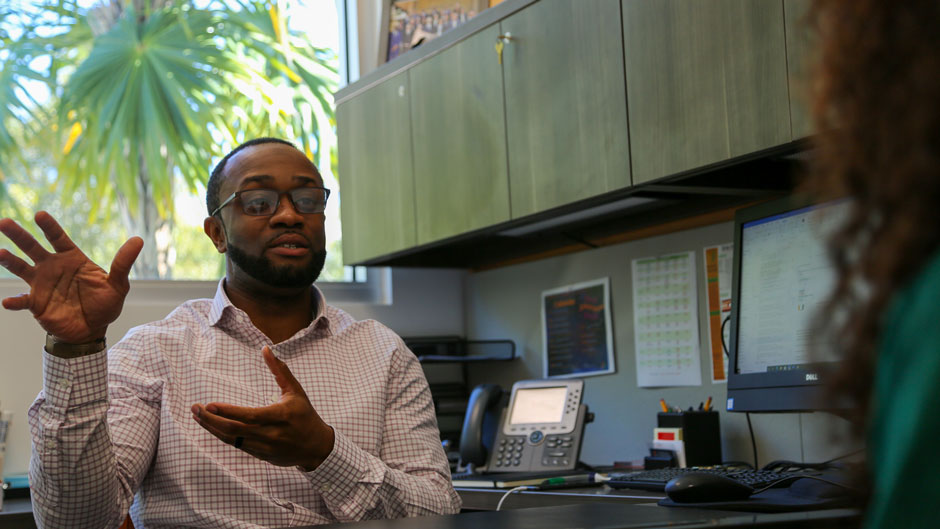As a South Florida native, Christopher Clarke is no stranger to Miami's warm weather and diverse population. He sums up the opportunity to work at the University of Miami in one word: home.
Clarke maintains a repertoire as an accomplished, data-driven student affairs professional with 10 years of experience leading diversity initiatives in higher education. He comes from the University of Chicago Law School where he served as its inaugural director of Diversity and Inclusion within the Office of the Dean of Students. He has also served as program director of the University of Michigan School of Public Health’s Health Equity Leadership Pipeline Collaborative, where he managed health equity research and pipeline programs for minority students committed to eliminating racial, ethnic, and socioeconomic health disparities.
“Over the course of my career, I’ve worked in many communities and, while I’ve enjoyed all of my experiences around the country, I’ve always looked over my shoulder thinking how nice it would be to do this in my own community,” he said.
While most travel south was to avoid the colder winter months after high school, Clarke braved the weather and traveled to Wisconsin to pursue his bachelor’s degree, then stayed in the Midwest after graduation for work. The cold, however, was the smallest of his obstacles while on this journey as a first-generation, Caribbean-American student.
“I felt a tremendous amount of pressure,” he said. “I knew that doing something different was risky and that my family was watching to see how I would fare. At that time, they could not completely grasp what I was pursuing; however, they knew it was something that I needed to do and pushed me to keep going.”
Clarke, who found himself at a predominantly white institution with little to no resources for minority students, struggled to find his fit in that educational community. Being thrown into a culture completely different than his own was a hurdle for him—where conversations as minor as a TV show reference that everyone else understood could make him feel out of place. At the same time, returning home with newfound knowledge and experiences he learned at college were foreign concepts to his family, too.
“Academia is such an exciting and evolutionary environment for young people,” Clarke added. “For traditional students, these are developmental years where they’re learning and growing more than ever before. The collegiate experience is not only about academic development, but interpersonal, professional, social development as well. In my opinion, students that grow in each of these areas are better equipped to thrive in our everchanging world.”
Returning home is a dream for Clarke for this reason. He believes that the University of Miami’s position, within a city that is a melting pot, provides everyone in the community with an advantage of understanding the diverse world through one another’s perspectives. Leading the office of Multicultural Student Affairs (MSA), specifically, allows his experiences to come full circle. Because, now he can be the kind of mentor he needed when he went off to college.
“As a person who has benefitted from my parents’ and grandparents' sacrifices, why would I not want to make the path easier for someone else behind me?” he asked. “I look forward to meeting and engaging with students but also to feeling their energy for the University. The student leaders and our staff who serve in our office are extremely talented and passionate about the mission, and I hope to be a resource for them, too.”
As for the future of, Clarke doesn’t see himself shaping the office so much as finding ways to add value to it. His vision for the office includes making the space an inclusive resource for all who are interested in MSA's mission, no matter their background. He also looks forward to creating a welcoming environment for new approaches to diversity, inclusion, and assessment
“I want to give students the opportunity to come here, feel welcomed, and participate in our programming,” Clarke said. “I want to embody what multicultural is, making sure that students know our office is always open to ideas, innovation, and diversity.”

